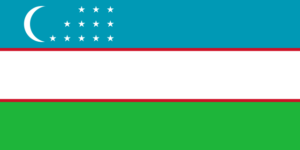
Region: Asia
Disability Definition
Person with a disability – a person with persistent physical, mental, sensory (sensual), or mental impairments, who needs social care and protection, creation of conditions for full and effective participation on an equal basis with others in the political, economic, social life of society and the state.
Legislation
The Law of the Republic of Uzbekistan on The Rights of Persons with Disabilities 2020: “The purpose of the present Law shall be to regulate relations in the field of ensuring the rights of persons with disabilities.”
Principles for ensuring the rights of persons with disabilities;
Respect for the dignity of persons with disabilities, their independence, and freedom of choice;
Inadmissibility of discrimination on the grounds of disability;
Equality of opportunities in the exercise of human rights and freedoms;
Respect for the evolving capacities of children with disabilities and their right to preserve their individuality;
Accessibility of facilities and services;
Involvement of persons with disabilities in the life of society and the state.
Employer Legal Requirements
Uzbekistan’s constitution along with the law they adopted based on the Convention on the Rights of Persons with Disabilities states that, “the law obliges public institutions and private enterprises, where at least 20 individuals are employed, to reserve at least 3 percent of jobs for persons with disabilities.”
Accessibility Requirements
The Law of the Republic of Uzbekistan on The Rights of Persons with Disabilities 2020: “Accessibility of facilities and services shall be ensured by creating conditions for persons with disabilities to have access – on an equal basis with other citizens – to buildings, facilities, transport, information, and means of communication, including information-communication technologies and systems, as well as to other facilities and services provided to the public.
The planning and development of cities and other settlements, the formation of residential and recreational areas, the development of design solutions for new construction, the reconstruction of buildings, structures and their complexes, as well as the development and production of public transportation means, information and means of communication without accommodating these facilities for unhindered access to them by persons with disabilities shall not be permitted.”
Cultural Norms
UNICEF conducted a situation analysis report in Uzbekistan that revealed that the attitude towards people with disabilities is “charity-focused”.
From the report, the people that were surveyed explained their view on disabled people; “People associated disability predominantly with the provision of non-personal assistance compassion, pity, the need for mercy, the desire to help. When asked of their sentiments towards people with disabilities, almost half of people without disabilities surveyed felt pity towards them and 23 per cent wished to help them.”
Business Practices/Examples
Additional content coming soon.Insights
There have not been surveys that were conducted to focus solely on people with disabilities.
Based on UNICEF’s situation analysis report,
Employment-to-working Age Population Rate:
PWD’s = 7.1% vs. People without disabilities = 31%
Part-time Employment Level:
PWD’s = 47.9% vs. People without disabilities = 30.6%
Informal Employment:
PWD’s = 40% vs. People without disabilities = 35.3%
“Data shows that people with disabilities are 4 times less likely to be employed than people without disabilities. The average wage of people with disabilities in the formal sector is considerably lower (612,000 UZS) than people without disabilities (827,000 UZS).”
